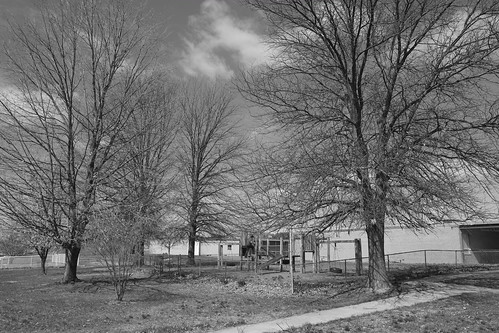
One of my old elementary schools, now closed and scheduled for demolition, Waynesboro, VirginiaPBS’ News Hour recently had a piece about Bayard, New Mexico, a school district that haa moved from a five-day to a four-day school week. It did so mainly for financial reasons, and it’s now assessing the pros and cons of the shift.
It seems that there are benefits in terms of lower absenteeism, better teacher recruitment and retention, and some teachers reporting better classroom performance (both on their own part and on among students). Coaches like it because it makes more time for practices and games. And for kids in rural districts who are spending a lot of time on school buses— kids in this particular district may spend three hours a day commuting to and from school— it means less time on the road.
It’s also interesting how the concerns about the 4-day school week are framed. A lot of it has to do with the babysitting functions of school: librarians complain that they have more unaccompanied kids in their libraries (apparently children in the library are a negative), grandparents and other relatives are more tired, etc.. (This ought to highlight just how much energy teachers have to spend doing these things.) For others, there’s an equity issue: if my kid’s spending less time in school, will they be as well-prepared for college or work as a student who spends more? Equating time spent with outcomes is hardly unusual, in education or the workplace, but still it’s notable how quickly the discussion moves to this ground.